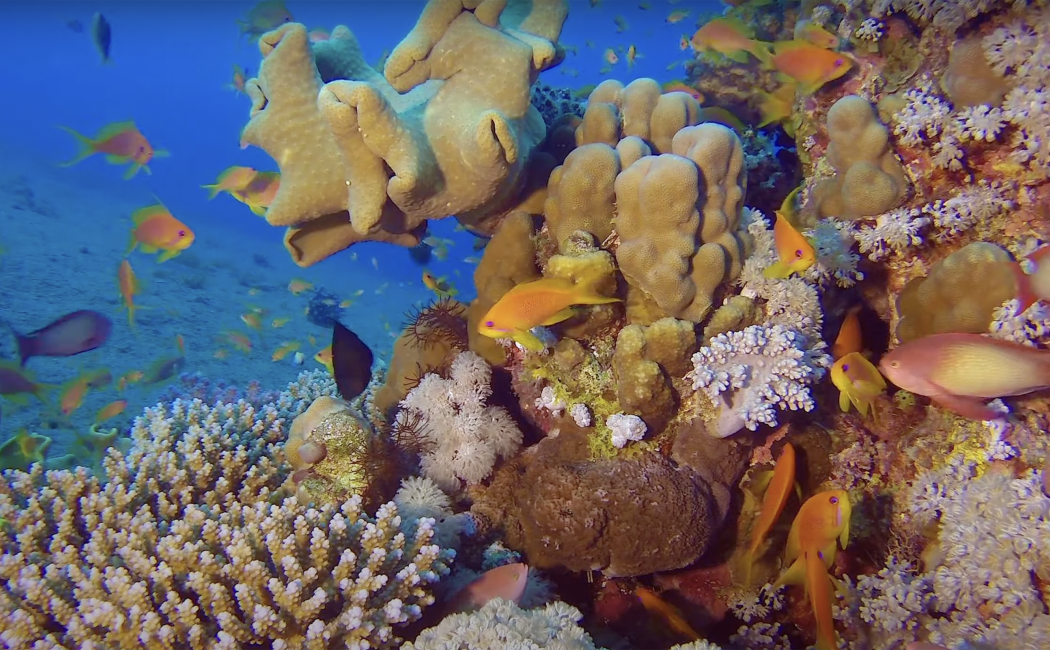
13 December, 2021
KAUST alumni are providing marine science talent to support the Kingdom's Vision 2030 giga-projects through their jobs at NEOM and The Red Sea Development Company. These young professionals bring a suite of essential skills to their new roles in support of marine conservation and sustainable tourism, including extensive hands-on engagement in the Red Sea and KAUST research laboratories, and close working relationships with leading faculty experts.
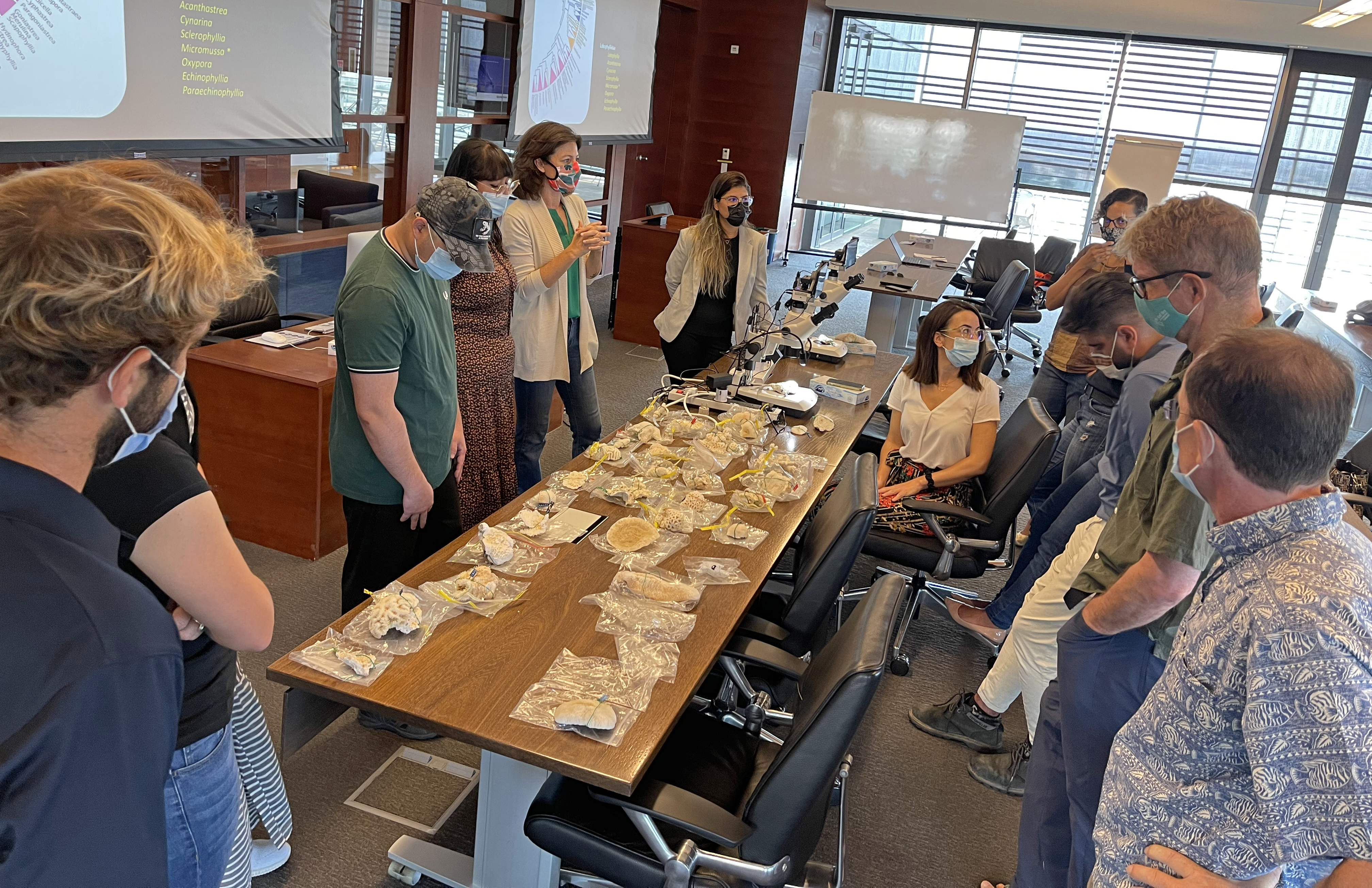
Their knowledge contributed to the success of the 2021 KAUST Coral Training Workshop, which centered on helping marine science students and non-KAUST faculty and professionals, such as specialists from NEOM and The Red Sea Development Company, identify coral species of the Red Sea to better understand and protect these vulnerable coral reef ecosystems.
NEOM
Working as a marine conservation analyst at NEOM is a dream job for Enjey Ghazzawi, MS ‘18: “I love NEOM; it’s applied science, and everyone who wants to build their dream comes here.”
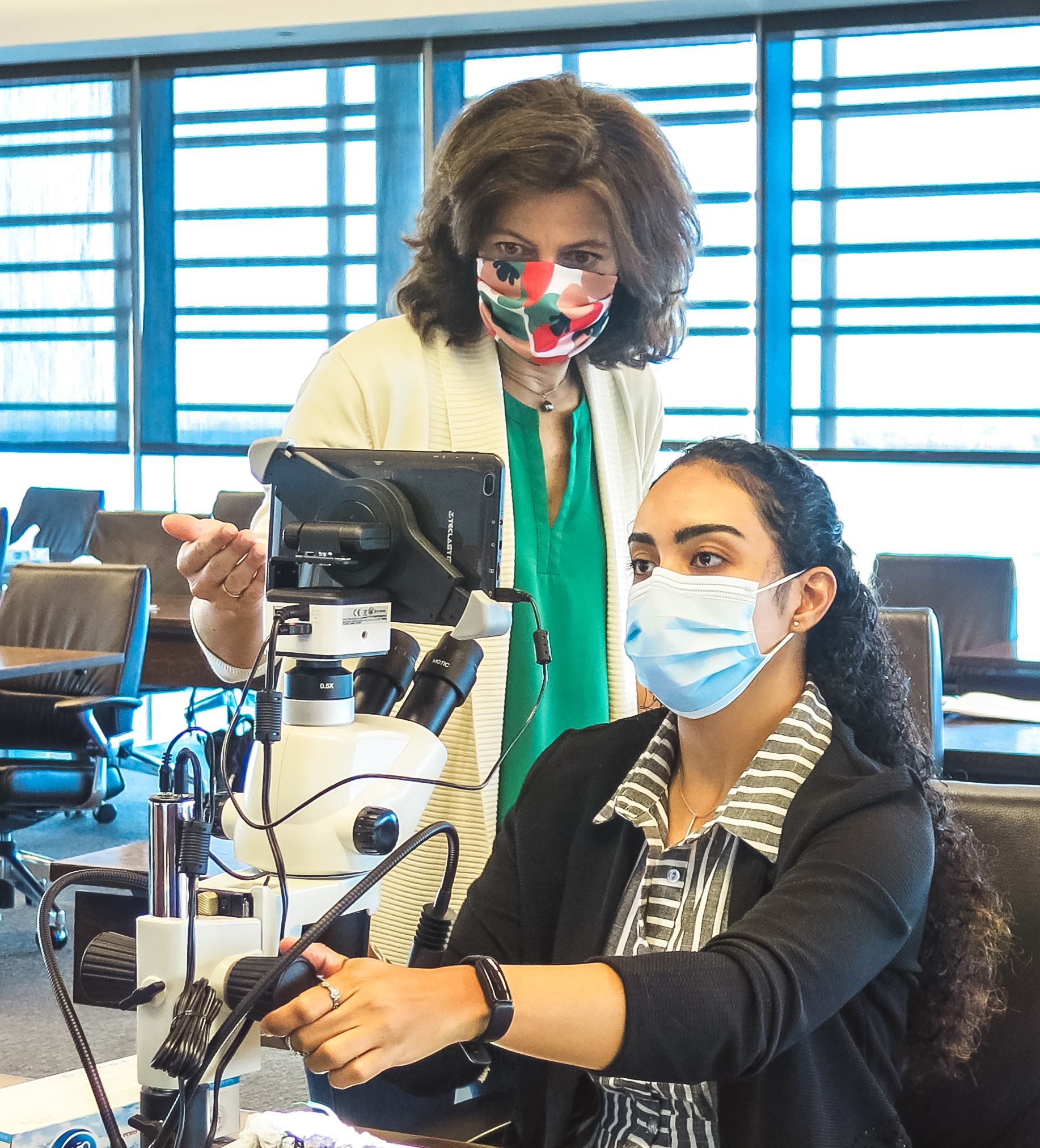
Graduating with a master’s degree in bioscience from KAUST, Ghazzawi’s new role has her focusing on the study and conservation of the marine ecosystem in NEOM waters of the Red Sea coast. A component of her work includes calculating carbon sequestrations in the NEOM region. This refers to how blue carbon ecosystems such as sea grasses, algae and mudflats absorb carbon from the atmosphere into their tissues, and filter and convert them into organic carbon. This organic carbon will be kept in their tissues for their lifetimes and can be embedded into the sediment for millions of years, a process that reduces the quantity of free carbon in the atmosphere.
“The most enjoyable part of my job is doing surveys,” said Ghazzawi. “Being in the field is the best, but of course after being in the field I need to analyze what I’ve found, which is where my KAUST experience especially comes into play.”
THE RED SEA DEVELOPMENT COMPANY
“I always wanted to move to applied research by working in industry, so I can use my knowledge from KAUST in the real world,” said Eva Martinez, former KAUST postdoctoral fellow and research scientist, now senior coral science manager at The Red Sea Development Company (TRSDC). “TRSRC really needs science to achieve their goals of maintaining and even enhancing biodiversity. This is what inspired me to work here.”
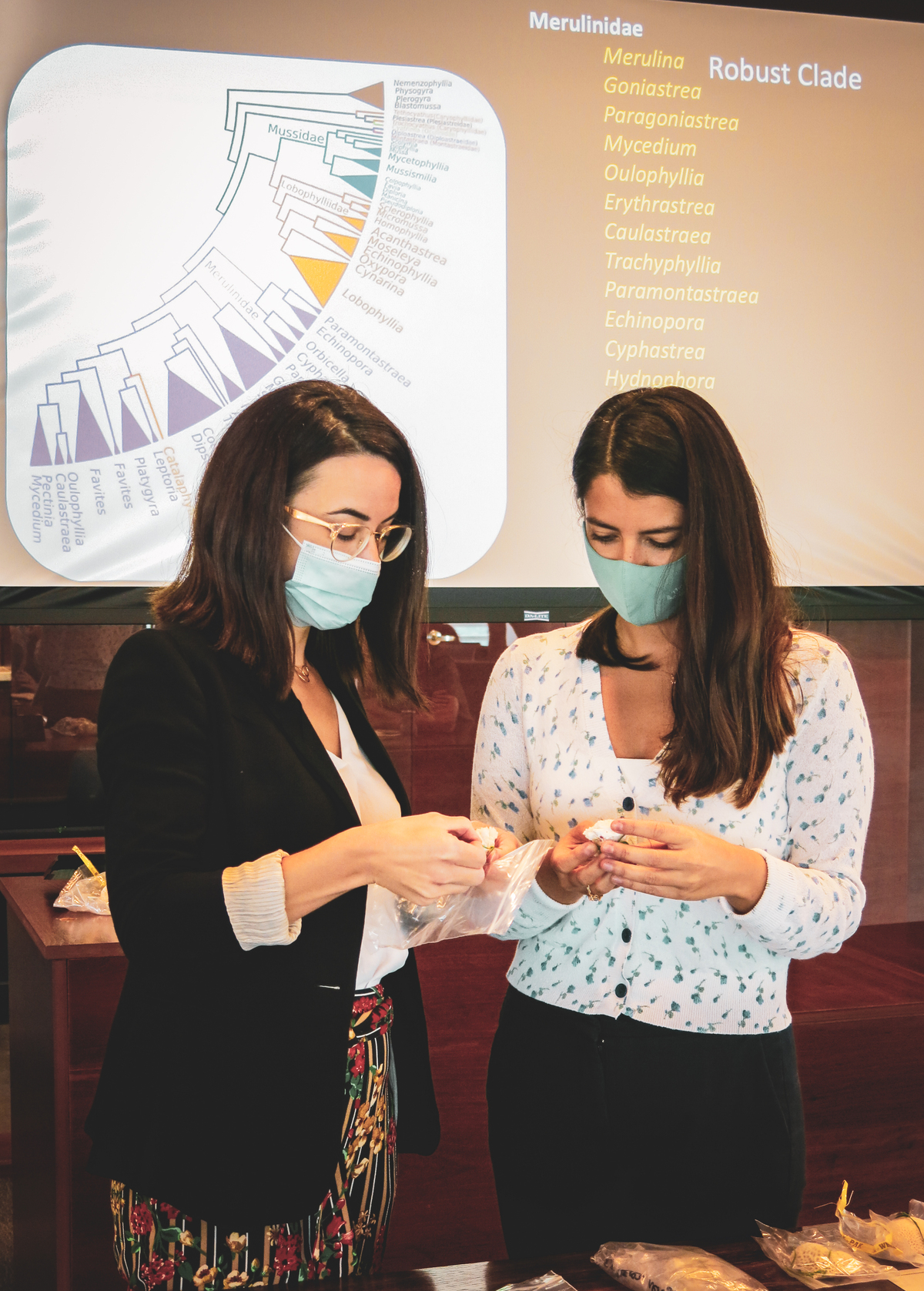
Martinez’s role involves supervising the impact monitoring program, specifically conducting underwater surveys in marine areas close to development. One of the techniques employed by the team is taking underwater photography and turning it into 3D models to see how the reef looks over time, and how species develop.
“If marine communities are responding to something, then we have enough information to understand why, whether it is natural viability or other activities. Further, Martinez is also involved in collecting samples to determine nutrient levels, and using molecular tools to extract DNA and then sequence and characterize microbes and fish to see how they are changing over time. “Everything I learned at KAUST has helped me with this role.”
For Luis Silva, PhD ’20, his role as environment microbiology manager at TRSDC is a dream job. “As a marine biologist we always dream about being in the sea every day,” he said. “We spend a lot of time in the field to build up a really good baseline of the ecosystem we have there.”
Silva, who received his Ph.D. in 2020 at KAUST, explains how it helps in his current role. “My time at KAUST was really important for the high-quality interaction with a range of marine science subjects and scientists,” he said. “The thing I really got from KAUST was the broad overview of marine science and the multidisciplinary aspect of it.”
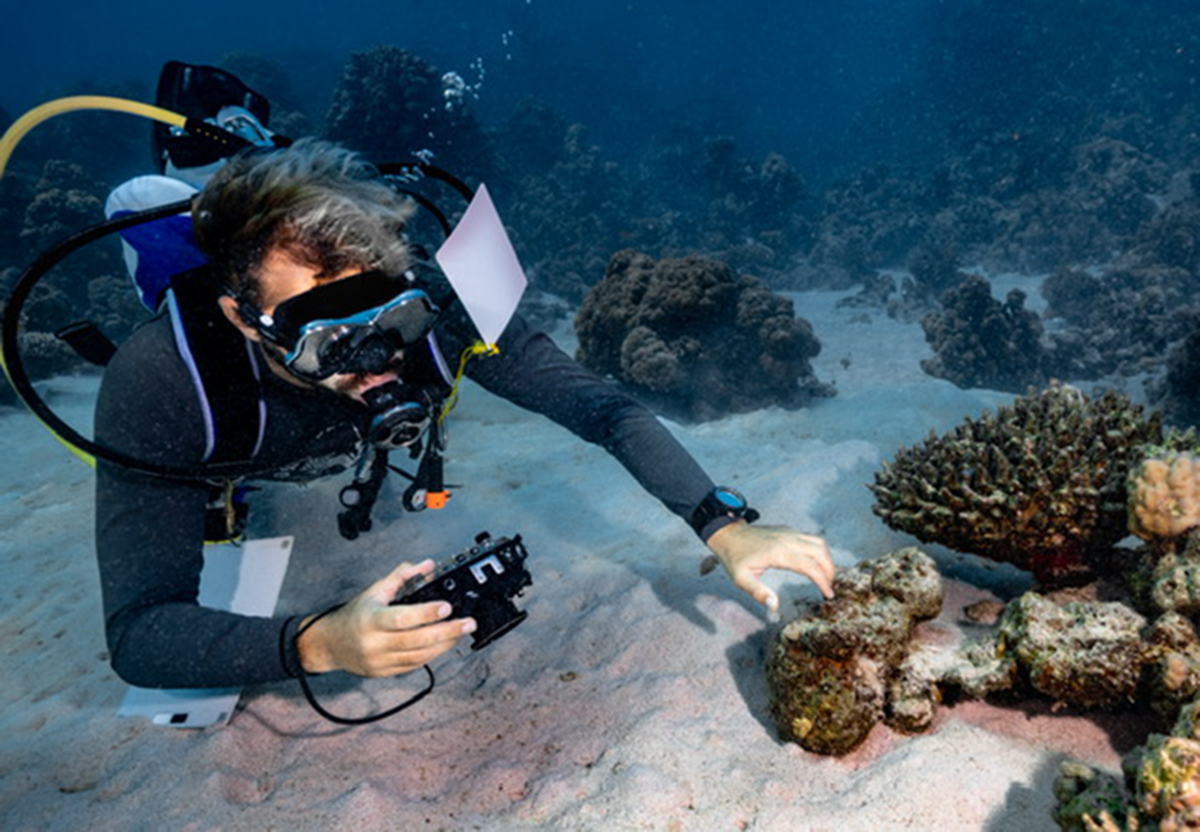
Like Martinez, Silva is also involved in impact monitoring, in this case overseeing the impact of construction on the benthic (coral) communities, and also helping assess the baseline surveys in fish and benthic communities.
“It’s the most ambitious project worldwide,” said Silva. “Coming as a Ph.D. student interested in marine science, it’s great to see they want to develop these areas for tourism while taking into consideration the most valuable resources that we have: the coral reef system. It’s been a year, and I am still excited as I was the first day to be involved; it’s been a really amazing journey so far. The goals of the project are really in line with my view to protect the marine system.”
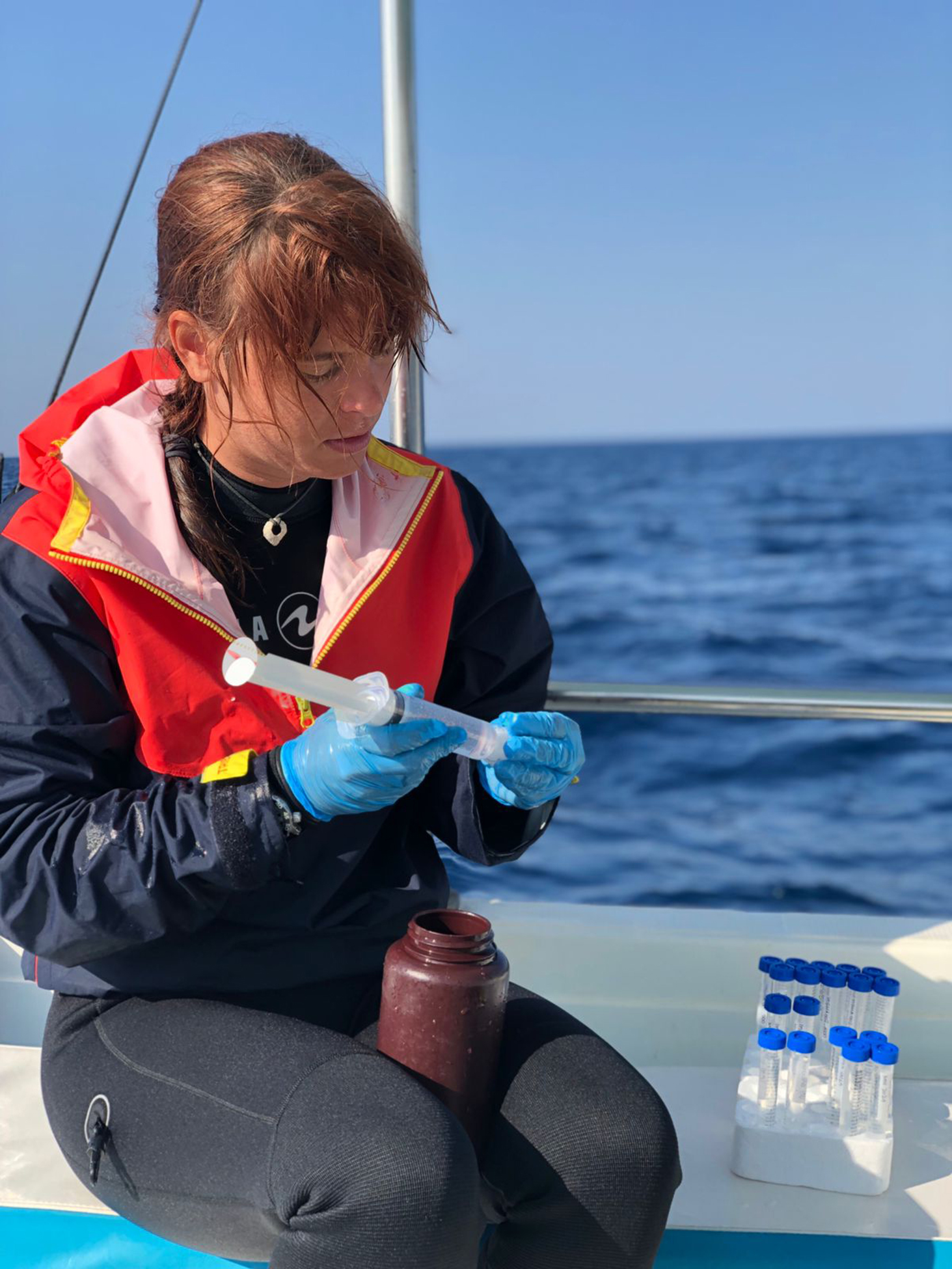
Susann Rossbach, environmental chemical science manager at TRSDC, is responsible for environmental parameters, such as water chemistry and sediments.
“My work is very diverse since environmental factors are diverse,” she said. As such, Rossbach works with the teams that monitor fish, mangroves, corals and sea grasses. “The interdisciplinary nature of my Ph.D. studies at KAUST (Spring 2020) really translated to my work.”
Like Silva, Rossbach is very inspired by the company’s vision. “This is the first time such a big project has put effort into ecology from the beginning, and that is very exciting from a biologist's view,” she said. “We have an influence from the beginning to make things better. In addition, the area is very understudied, so from an ecologist’s view it's nice to be in a place where only a few people have been before.”
Header Photo: Biodiversity in the Red Sea: a colorful coral reef is teeming with fish and marine life. Photo: KAUST.
Photo 1: Participants in the 2021 KAUST Coral Training Workshop, led by Associate Director of the KAUST Red Sea Research Center Dr. Francesca Benzoni, viewed coral skeletons to differentiate morphological and genetic traits of species unique to the Red Sea. Photo: KAUST
Photo 2: Enjey Ghazzawi, marine conservation analyst at NEOM and KAUST alumna, participated in the 2021 KAUST Coral Training Workshop; shown here at the microscope (foreground) analyzing the skeletal structure of a coral with the help of Dr. Francesca Benzoni, associate director of the KAUST Red Sea Research Center. Photo: KAUST
Photo 3: (Left to right) Eva Martinez, senior coral science manager at The Red Sea Development Company and KAUST alumna, views coral skeletons with Dr. Tullia Isotta Terraneo, a KAUST postdoctoral researcher and alumna, to differentiate morphological and genetic traits of species unique to the Red Sea as part of the 2021 KAUST Coral Training Workshop. Photo: KAUST
Photo 4: Luis Silva, environment microbiology manager at The Red Sea Development Company and KAUST alumnus, photographs coral species in the Red Sea as part of the 2021 KAUST Coral Training Workshop; cameras are among a suite of non-invasive tools used by marine scientists to document and identify marine life. Photo: KAUST
Photo 5: KAUST alumna Susann Rossbach filters seawater samples for lab analysis of nutrient concentrations as part of her work as environmental chemical science manager at The Red Sea Development Company. Photo courtesy Susann Rossbach.